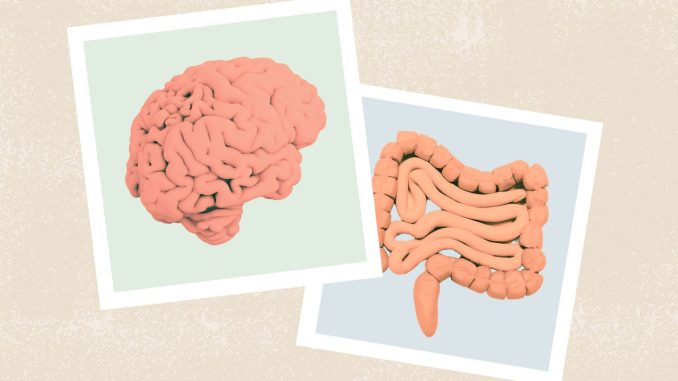
The focus in recent years has brought about a shift from traditional health measurements — like how well a person’s lungs work and her susceptibility to disease–beyond skin deep down into what appears now an even more mysterious realm of our bodies: The Gut Microbiome. Conceived as generally a web of bacteria, viruses, funguses and other single-celled organisms that dwell in the innards, this complicated web of life is now so completely identical tip-to-toe as is good health and affluence. But if we can only learn how to handle our inner health care! Nor is there much that needs to be altered about what is preached here; for through its health practices are healthy and fit people actually doing things even in everyday life.
Unveiling the Microbiome
It is thought there may be trillions of microorganisms present in the human gut. A person’s gut microbiome is also an ever-changing and varied mix of microorganisms; each person’s gut stands out because of its specific characteristics such as genetics and diet and lifestyle.
That ecosystem has over eons become established but continues its symbiotic incumbency: Hence up to now, it would have been nearly impossible to find out just what bacteria lived in one locale. Culture and ecology together provide the necessary facilities to describe such various invisible beings who even from their hidden places never come out at all.
And thus the microscopic life-forms like organisms found in food have been cultured at large for science students, by growing them on agar- complimented nutrient gels at homegrown labs and seeing whole new types pop up across landscape scales. To some extent this breeding takes place within a limited community and gives scientists very fine-grained knowledge about interactions between two species.
The Power of Cultivating a Healthy Gut
Research lately have revealed how influential gut bacteria–or ‘microbiome’—are in whom one is. Take our digestive system and disposition as cases in point. And it’s in recent years that evidence has emerged showing an unbalance in the gut—termed dysbiosis—results not only in chronic fatigue syndrome or irritable bowel syndrome but also for conditions like inflammatory bowel disease. In addition to the stomach–it’s now thought that not only do our inner ecosystem affect problems with the mind such as anxiety and depression, but this is known as the “gut-brain axis.”
It is here that modern microbiome researchers are finding one of those most interesting areas to work in. We’re beginning to discover how an extensive population of microorganisms within us can help determine our moods or mental states. Some studies have shown, for instance, the microbiome is actually a factory of neurotransmitters and other molecules. Certain of them are able to act on your brain’s function and consequently how you feel or think. For instance, certain intestinal bacteria produce serotonin which is an important neurotransmitter regulating mood as well.
Think about it: what does that all mean? By adding friendly microbes to your diet, you could learn how to handle stress even more successfully. How Can A Healthy Gut Microbiome Benefit Us? Probiotics and prebiotics — substances which promote the growth of good bacteria in the gut increasingly draw attention as complementary treatments for mental illness.
Eating Behavior And The Microbiome
Diet likely has the most impact on gut health, at least in the short run. A high-fiber diet with plenty of fruit, green vegetables and fermented food in it creates a balanced and diverse environment for everything from yeast up to man. How You Can Get The Most Out Of Your Foods Yogurt, kefir, sauerkraut or kimchi are good sources of probiotics. Fiber rich foods that contain prebiotica and help feed good gut bacteria are whole grains, legumes, nuts, etc… Ingesting refined food, sugar and artificial compounds can be smellier than rotten.
But compensate for it: your microbiome may fall ill– in a way that ultimately causes human sickness a variety of different ailments. Modern studies have found that high fat, high sugar diets increase harmful bacteria and lead to inflammation, which in turn generates obesity, diabetes, heart disease and other summonses from swelling.
Historical Background For Health Care
Products Of The Microbiome Microbiome is an era of rapid advancement, and Personalized finally comes when here is where it stands now. Current modern Western medicine, to be able to bring a person diverse customs medications and dietary advice according to their own idiosyncratic bacterial composition, centre moves gradually past. Recently new advances in the technology of sequencing and analyzing the microbiome have made it possible to identify precise microbial signatures associated with responses to foreign microorganisms or such kind reactions such as good health.
Likewise, numerous medical products related to probiotics and prebiotics therapies for treating diseases are now under development. As we continue our investigations into this wonderful world, it becomes ever clearer that the well-being of our inner organs is an absolute requirement if we want a wholesome adulthood in vibrant health.
Embracing the Microbiome Revolution
By adding strategies that help with the microbiome and reduce its damage, you ‘ll improve your body overall. A diet of balanced nurturing composed of many nutrients, stress management by taking it easy on yourself and consuming (or excluding) both probiotic foods maintains a beneficial abode for microbes. This health in turn is also teaser for human health keeping its best parts. Take every opportunity to be familiar with the latest in gut-health literature–after all, there ‘s no point getting left behind when it comes to your own wellbeing.
The revolution in understanding gut health indicates that we should look beyond mere physical health statistics and decide that any form of wellness is intertwined with the gut microbiome. If this understanding is combined with research, it may lead to personalized medical breakthroughs and an inspiring viewpoint on how healthiest living styles would vary depending on the level of society’s development.